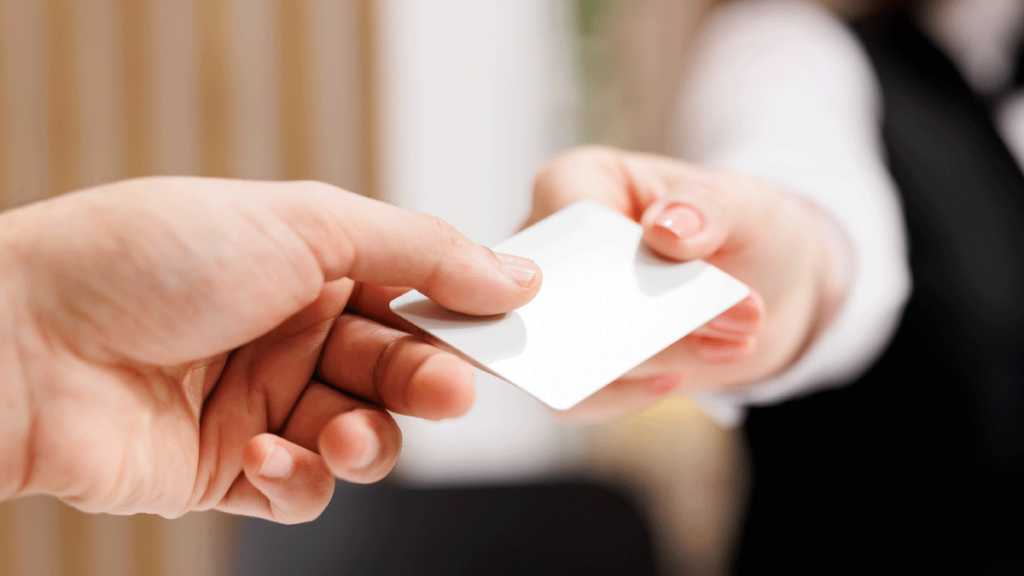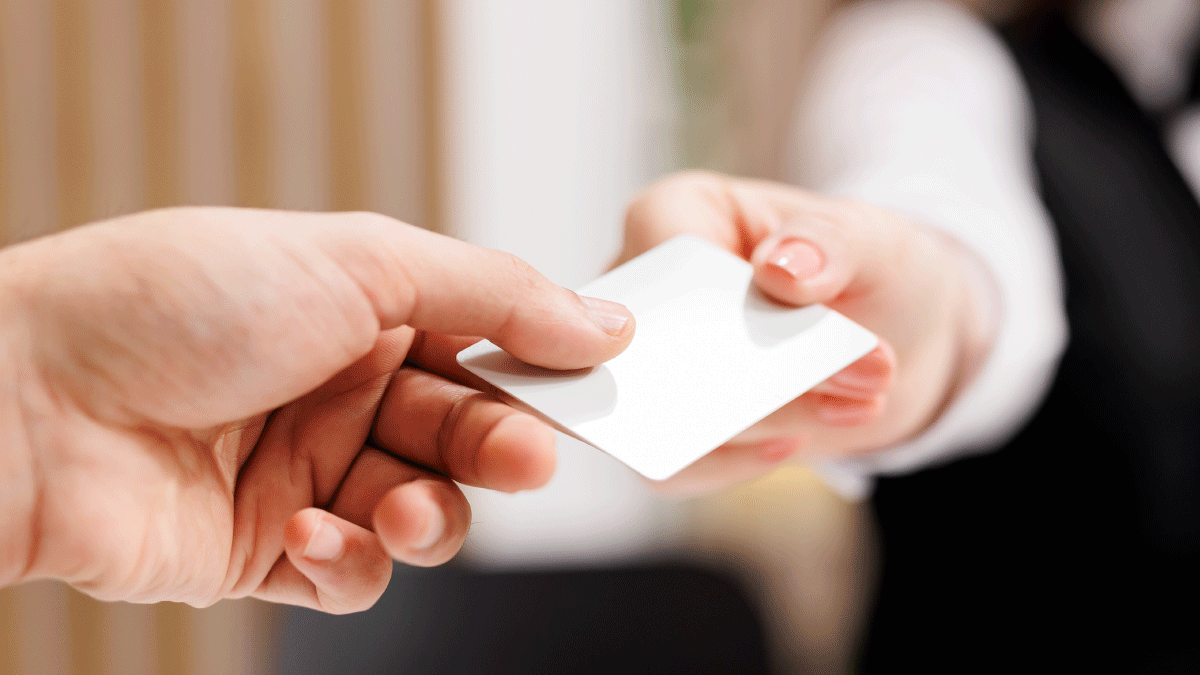
Did you know that 60% of corporate employees in the US struggle with unexpected costs? These costs generally include incidental expenses and emergency expenses. A recent study revealed that business travelers frequently use personal cards to pay incidental expenses. Managing hotel incidentals is one of the significant challenges for many corporate employees in the United States.
Incidentals, which can include anything from room service and minibar charges to laundry services and in-room entertainment, often add up quickly, catching travelers off guard. This situation strains their finances and complicates reimbursement, causing further inconvenience and potential financial stress.
Such dependency on personal cards for managing hotel incidentals reflects a poor corporate travel management process. Without a streamlined approach, employees face unnecessary hurdles, and companies lack clear visibility into overall travel expenditures.
This is precisely where corporate cards come into play. Explicitly designed for business-related expenses, corporate cards offer a seamless solution for managing incidentals at hotels, ensuring that employees are not burdened with out-of-pocket costs.
In this blog, we will look into the advantages of corporate cards for hotel incidentals and how they can alleviate the common pain points experienced by corporate travelers.
What Does the Term ‘Hotel Incidentals’ Mean?
Incidentals during business travel, also known as hotel incidentals, are expenses that employees incur during their stay. These expenses are not included in the standard room rate. Incidental charges in a hotel typically include laundry, food and beverages, mini-bar usage, and occasionally internet access. Hotels often require customers to provide an ‘incidentals deposit’ or ‘security deposit’ to cover additional costs while checking in.
These incidental charges are tracked in the hotel whenever a customer purchases the hotel’s paid facilities. For instance, the hotel staff notes the customer’s room number when they check in. The hotel incidental fee is added to the bill during checkout for whatever facilities the customer has used in his/her room.
Types of Incidentals Charged by Hotels
Hotels often charge guests for various hotel incidentals beyond the room rate. These hotel incidental fees typically cover additional services or amenities during the stay.
Here are the common types of incidentals charged by hotels:
- Mini-Bar Items: Consuming snacks or beverages from the in-room mini-bar typically involves additional charges.
- Room Service: Ordering food or drinks delivered to your room incurs service fees in addition to the cost of the items.
- Wi-Fi and Technology Services: While some hotels offer free Wi-Fi, others may charge for high-speed internet access or tech services like in-room entertainment.
- Parking Fees: Many urban hotels charge for parking, mainly if you use valet services.
- Telephone Calls: Using the hotel room phone locally may incur additional charges.
- Laundry and Dry Cleaning: If you use the hotel’s laundry or dry cleaning services, they will be added to your bill.
- Resort Fees: Some hotels charge a daily resort fee that covers amenities like gym access, pool use, or daily newspapers.
These incidental charges in hotels can be as low as $15 and as high as $150, depending on the room’s size, cost, and availability. These prices can shoot up during peak seasons.
Why do Hotels Charge for Incidentals?
Incidental charges in a hotel cover the cost of additional services and amenities that guests may use during their stay. These charges exceed the standard room rate and include expenses such as minibar items, room service, phone calls, laundry, and on-demand entertainment.
By authorizing a hold on a guest’s credit card at check-in, hotels ensure they have a form of payment for any of these unexpected or extra charges. This practice also protects the hotel from potential losses, guaranteeing that guests can pay for any services they utilize during their stay. Additionally, it encourages responsible use of hotel amenities by making guests aware that these extras will be added to their final bill.
When do Hotels Typically Charge for Incidentals?
Hotels typically handle incidental charges in a few different ways, depending on their policies:
- Pre-Authorization at Check-In: Most hotels block a certain amount on your debit or credit card during check-in. This pre-authorization covers potential incidental charges (e.g., mini-bar usage, room service). The amount blocked can vary but often includes a daily estimated amount for hotel incidentals on top of the room rate.
- Daily Charges: If you incur incidental charges in a hotel during your stay, such as ordering room service or using the mini-bar, these charges may be added to your daily bill. However, they are typically settled when you check out.
- Post-Checkout: After you check out, the hotel will review any hotel incidental fee incurred during your stay. The blocked amount is adjusted to cover these costs, and the remainder (if any) is returned to your card. This process can take a few days, depending on your bank.
Understanding this process helps guests avoid surprises and ensures they have sufficient funds available on their cards during their stay.
Managing Hotel Incidentals for a Corporate Travel Program
Effectively managing hotel incidentals is crucial for maintaining compliance and controlling an organization’s costs. Incidental charges in a hotel include room service, minibar usage, and other additional services. These can quickly add up and impact your company’s travel budget.
Establishing clear guidelines and payment flows ensures that employees and the organization handle these expenses correctly, whether within or outside the company’s policy.
Mentioned below are two case scenarios for managing hotel incidental fee for corporate travel programs:
1. Scenario 1: Individual Cards
When users pay with individual cards, the payment flow from booking to checkout is straightforward but varies depending on the type of incidental charges incurred.
- Booking and Checkout: Employees book their hotel stays using their individual cards. They are usually charged at checkout for the room rate, taxes, and incidentals.
- Incidentals Outside Policy:
- Company Liability Card: If the incidentals fall outside company policy, users must swipe the company-provided card. The company will then investigate the expenses and recover the amount from the employee if necessary.
- User Liability Card: If business travelers swipe their individual cards for hotel incidentals outside the policy, they bear the total cost. The company won’t reimburse these expenses.
- Incidentals Within Policy:
- Company Liability Card: Employees swipe the company liability card, and the company pays the outstanding amount, covering the incidental charges in a hotel.
- User Liability Card: If the employee swipes their individual card, the company still pays the outstanding amount or reimburses the employees to cover the incidentals as long as they fall within the policy.
2. Scenario 2: Central Cards
In scenarios where central cards are used, the company takes a more direct role in managing payments.
- Booking and Checkout: The company sends a Credit Card Authorization (CC Auth) form to the hotel for payment, which covers the room rate and taxes.
- Incidentals Outside Policy:
- Company Liability Card: If the hotel incidental fee is outside the policy, the user swipes the company card, and the company will recover the amount from the employee. Additionally, if the fee is non-policy compliant, it can be covered within the CC auth buffer amount, which will then recover the amount paid by the employee.
- User Liability Card: Alternatively, the user may swipe their individual card and bear the costs directly.
- Incidentals Within Policy: The Credit Card Authorization (CC Auth) provided by the company usually includes a buffer (typically around 40% of the room rate and taxes) to cover incidentals. If the incidentals fall within the policy, the CC Auth will cover these charges, simplifying the process for the employee.
Solve for Hotel Incidentals or No Incidentals by using itilite Cards
There is no denying that corporate travel involves a lot of expenditures. One of the main expenses is incidental charges in a hotel. And the best way to solve this problem is by leveraging itilite corporate cards.
With itilite card, employees don’t have to use their personal cards during their stay in the hotel. With itilite, you can also automate the CC auth process using one-time virtual cards. Employees can easily use the card without worrying about compliance, as it has a set budget.
Moreover, with an itilite card, you can maximize your savings and get up to 1.5% cash back on all card spending.
Curious to know more about itilite? Book a free demo now!













